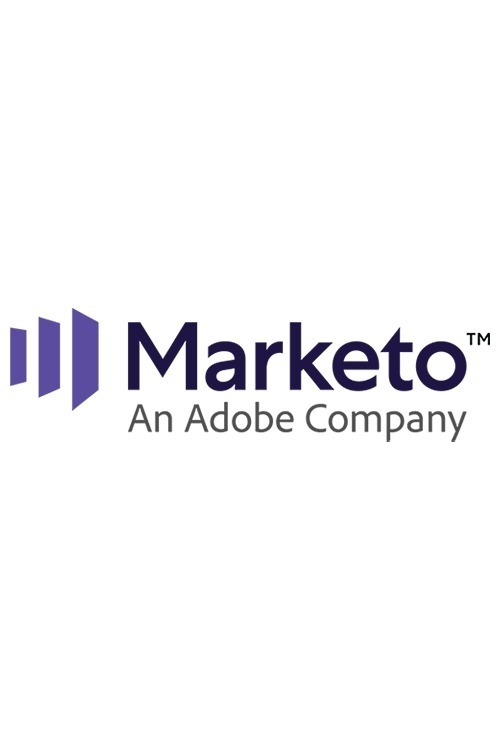
What is Marketo?

Marketo is founded in 2006, and has emerged as one of the leading marketing automation platforms with more than 2,300 customers and over 100,000 users from all over the world. What makes Marketo a very popular option for many B2B players is its ability to simplify the marketing process and streamline many marketing-related tasks to improve efficiencies and garner more revenue for its users.
On top of its simplicity and ease of use, Marketo is also built to be flexible and sophisticated, enabling users to do just about everything and achieve huge results. It is a comprehensive platform that can easily grow with your enterprise. More than just marketing automation, Marketo can be instrumental in other areas such as customer engagement marketing and marketing management. It also offers real-time personalization, allowing users to add their own touch to the system and make it more suitable to their requirements and preference.
Overview of Marketo Benefits

Marketo comes with a visual drag and drop interface which is very easy to use and does not require users to possess HTML skills to create professional email templates. On top of that, email marketing is relatively easy to do, as users can send emails based on actions, timing, or a series of steps that are pre-defined.
Emails sent via Marketo can be installed with social components via the “Forward to Friend” functionality. Email testing is also offered, which is great if you want to try out various content or if you need to dynamically change the content to make it fit specific situations.
Creating landing pages with Marketo is a breeze, thanks to its drag and drop interface and its massive collection of pre-designed templates. Data capture forms can help users to aggressively profile potential contacts, which can result to more lead data over time. Landing pages can also be converted into Facebook pages, which can be tweaked and customized using Marketo’s dynamic content capabilities.
Marketo provides native integrations with leading CRM platforms, including Salesforce and Microsoft Dynamics, which help sync both marketing team and sales team for better collaboration and awareness.
Lead management is also a strong suit for Marketo, which offers users the capability to gather strong leads based on pre-determined parameters and criteria such as demographics, input from sales reports, product scores, and prospect behavior.
From a social marketing standpoint, Marketo is a very powerful platform that can be applied in three different areas: social sharing, social engagement, and social promotion. Reporting and analytics are very much standard but delivers all the figures you need to know. You can gather reports based on various customizable metrics such as email and landing page performance, lead performance, and campaign performance among others.
Overview of Marketo Features

- Marketing Automation
- B2B marketing & lead management
- Consumer Engagement Marketing
- Email & campaign management
- Real-time Personalization
- Personalize messages across channels
- Marketing Management
- Budgets & marketing calendar
- Solutions
- Email Marketing
- Inbound Marketing
- Up-Sell and Cross-Sell
- Loyalty Marketing
- Lead Generation
- Event Marketing
- Measure & Optimize ROI
- Optimized Ad Spend
Marketo pros
- Extensive marketing solutions: Marketo is a comprehensive marketing suite covering all the essentials modern brands need.
- Flexible: Marketo offers separate products for marketing automation, email, analytics, etc. so you can pay for what you need and forget about the rest.
- Usability: By separating its platform into multiple products, Marketo is easier to use than less flexible, complex marketing suites.
- Quick and easy setup: For a marketing suite as comprehensive as this, Marketo is impressively fast and easy to set up.
Marketo cons
- Pricing: Marketo has never been an affordable option but prices have increased rapidly over the years – and the company isn’t particularly transparent about the full cost of its platform.
- No CRM: Marketo doesn’t have a built-in CRM although it does integrate with a wide range of customer relationship management platforms.
- Poor landing page & form builder: This is one area where Marketo still lags behind industry leaders such as Unbounce and Leadformly.
- Analytics & reporting: A lot of Marketo users complain that its analytics and reporting features are lacking behind the competition.
- Usability: While the overall experience is generally good, using some of the specific tools in Marketo can be frustrating.
- Speed: A lot of Marketo customers also complain that the software can be sluggish at times and this is consistent with our experiences.
Make no mistake, Marketo is a true leader in marketing software but there are some issues, as always. For us, the cost of Marketo is out of touch with today’s alternatives and there are too many issues with small (but important) tools to justify such a hefty price tag.
How much does Marketo cost?
Marketo doesn’t any pricing on its website and you’ll need to call up its sales team to get a quote. For some reason, it still decides to separate plans into three categories: Basic, Pro and Elite, even though pricing is meant to be based on the number of leads you have.
Instead, pricing is based on the plan and the number of leads on your account – something that’s easier to understand with a table.

Let’s be clear, those prices may have changed since we used Marketo and you should take them as a rough guide. Those are the monthly fees you’ll be paying on an annual contract and this could save anywhere between $250 to $2,500 depending on which plan you’re signed up to.
These fees are comparable with many of the other enterprise marketing software options on the market but there’s no entry-level option for smaller businesses so this isn’t something you can really use to scale your business from the ground up.
Either way, Marketo is one of the more expensive options, even at the enterprise level.


